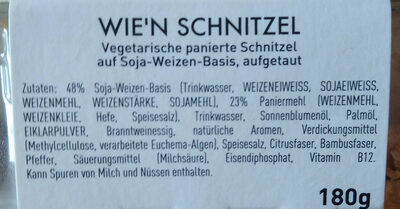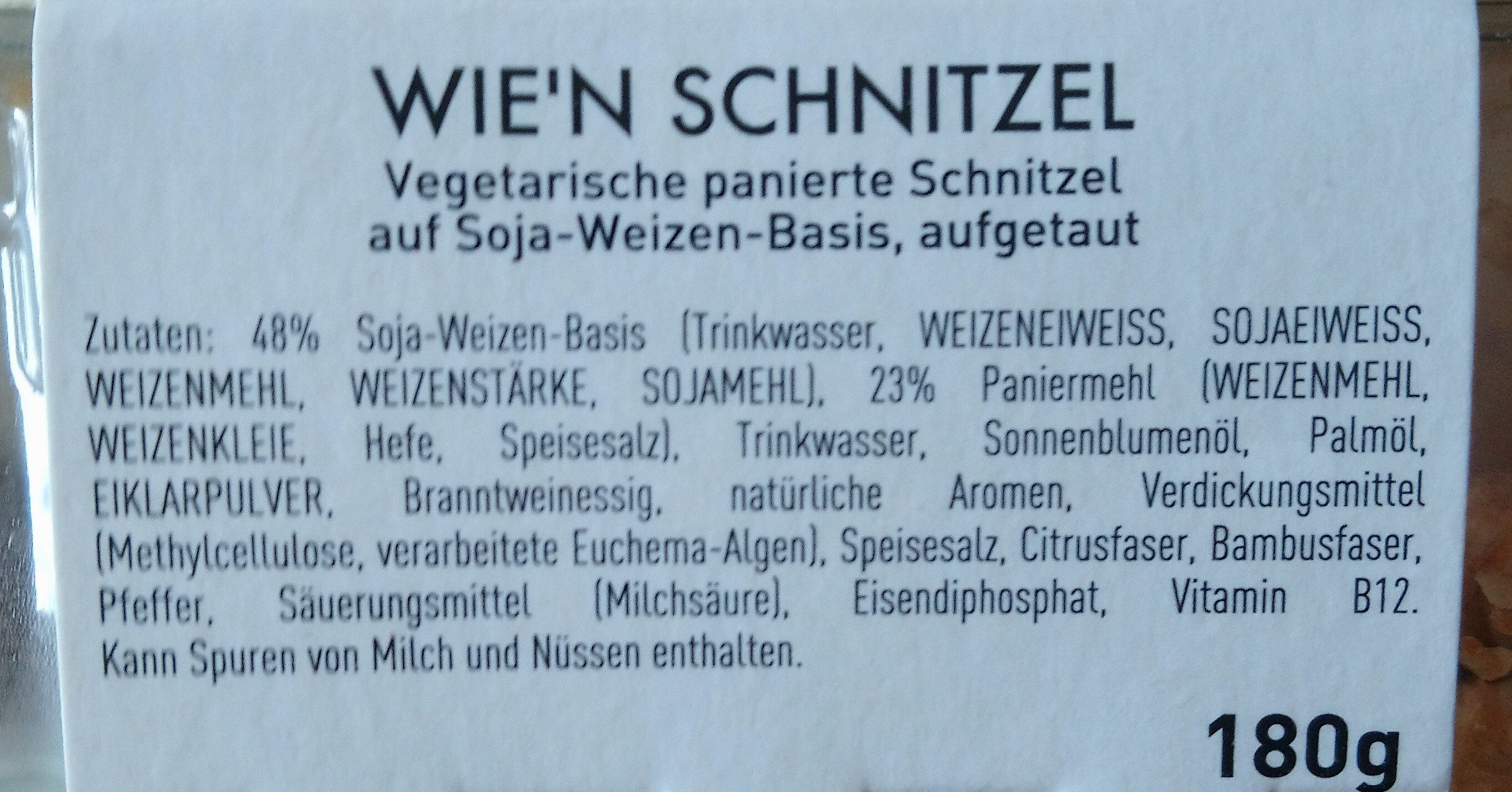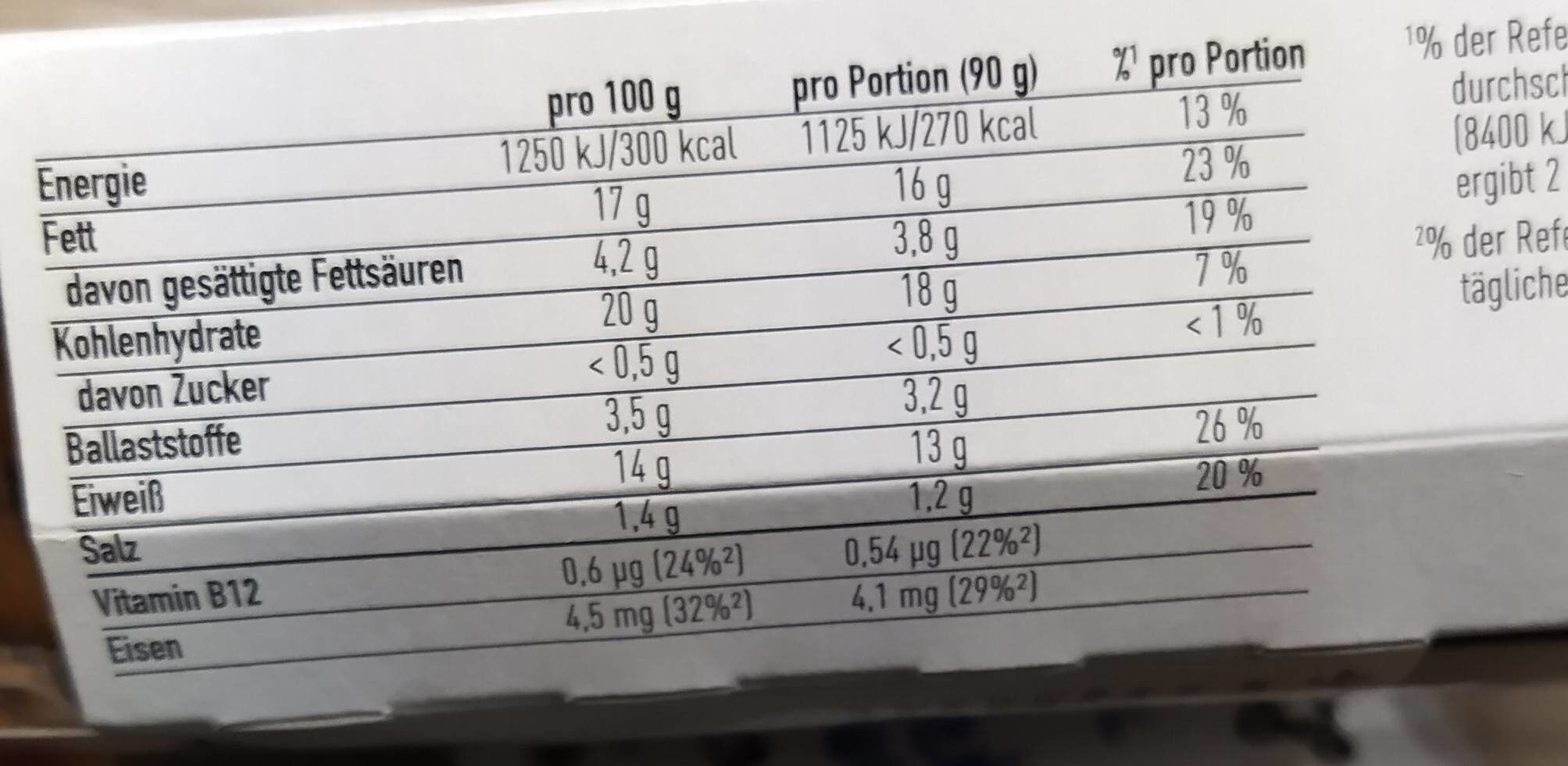Wie‘n Schnitzel - The Vegetarian Butcher - 180g
This product page is not complete. You can help to complete it by editing it and adding more data from the photos we have, or by taking more photos using the app for Android or iPhone/iPad. Thank you!
×
Barcode: 8718692788138 (EAN / EAN-13)
Common name: Vegetarische panierte Schnitzel auf Soja-Weizen-Basis, aufgetaut
Quantity: 180g
Packaging: Plastic, Pet-polyethylene-terephthalate, de:Packung(en)
Brands: The Vegetarian Butcher
Categories: Plant-based foods and beverages, Plant-based foods, Meat alternatives, Meat analogues
Countries where sold: Germany
Matching with your preferences
Environment
Packaging
Transportation
Threatened species
Report a problem
Data sources
Product added on by anticultist
Last edit of product page on by alex-off.
Product page also edited by date-limite-app, kiliweb, openfoodfacts-contributors, packbot, yuka.sY2b0xO6T85zoF3NwEKvln5gWeHSkDCeHRvuxUKC7NatFsC3QIhg87Xdbao, yuka.sY2b0xO6T85zoF3NwEKvlnwWeeuBoRzKLjPtvHOHxNzSHIzDatZU-tj7Nas.










